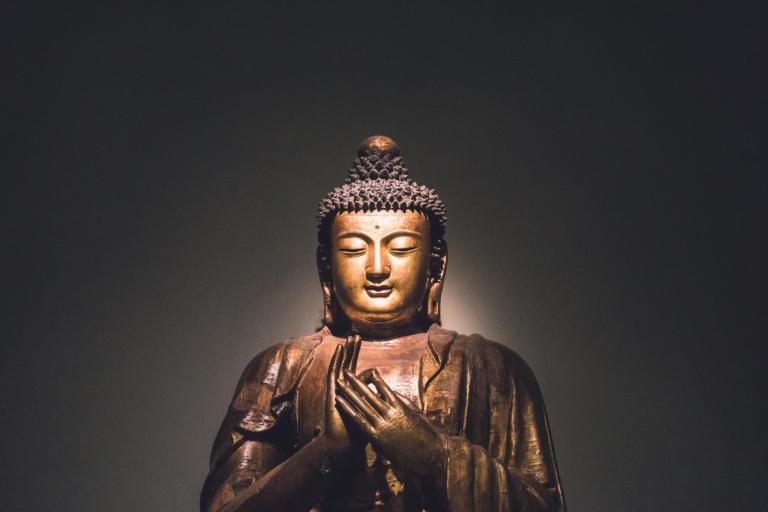Bob Thurman may be the best-known American Buddhist living today. A long-time professor of Buddhist studies at Columbia, he was the first Westerner ever to be ordained a Buddhist monk by the Dalai Lama. He has also published a series of popular books on Buddhism; I first became aware of him with the publication of Inner Revolution, which just had its 25th anniversary.
Thurman will tell you that Buddhism is not so much a religion as it is a way of thinking. He puts it this way: “You don’t have to be a Buddhist to benefit from Buddhism.” The lessons that can be culled from Buddhism can make you “a better Christian, or Jew, or secularist” or, in other words, a better person.
The basic goal of Buddhism is to achieve a state of enlightenment and free one’s self from suffering. As a CUNY website explains, “an enlightened state is one in which the fires of greed, hatred, and ignorance have been quenched.” The inner stormy waters have been calmed. Thurman writes that the positive results of achieving enlightenment are vast:
You engage in your world joyously. When you wake up in this way, you effectively help everyone you encounter come to the very same bliss, which you see they already have deep within themselves. All beings possess this same ability to wake up and become enlightened.
Bob Thurman is now 80 years old, a wise elder. His newly published book is called Wisdom is Bliss and he packs into it his vast knowledge of Buddhism. Thurman talks to concepts like the Four Noble Truths and The Eightfold Path, which he admits could be “a whole curriculum of a university.” (And can make for some dense reading.)
Fortunately, later in the book Thurman riffs on what it means to be a Buddhist. It is this material that I have turned into a simple 8-point guide. The thoughts that follow are mostly Thurman’s though I have added my own interpretation of a few points, hopefully staying true to the author’s intent.
An 8-Point Buddhist Guide to Being a Better Person
- Strive to achieve enlightenment. This is the bliss that comes from awareness of your true self, the essence of who you are beyond your cravings. You become aware of the reality of the world around you, good and bad. This awakening connects you to life, even its more difficult aspects, without getting overwhelmed by it. When you achieve enlightenment, “you won’t have just temporary relief or pleasure from some external event. The pleasure will come from within.”
- Your main effort should be to answer the questions “What am I, where am I, what should I do here and now?” To uncover the answers, use your own good sense and your own inner intuitive experience. See if your answers contain “compassion, generosity, and gratitude.” (Paul Dunion.) By knowing your own true nature, yourself within, you can be free of suffering.
- Remember, it’s not all about you. The cause of our own un-enlightenment is often self-centeredness. If you believe the world revolves around you, you separate yourself from others. But in reality, all others are equal to you. Act that way with each person you encounter.
- Only do that which will change your life and your mind for the better. What you do verbally and mentally will change the manner of your life. Associate yourself with good causes and reduce your connection to negative ones. Try to increase the good exponentially. Always choose the positive, even if it’s the tiniest thing.
- Speech should only be truthful, only peacemaking. What you say should be gentle, meaningful and kind. Harsh talk, or making people enemies with each other, is a negative action and sadly very powerful.
- Flip the switch on negative thoughts. Get a clicker for your mind. Don’t be a victim of your thoughts following your mind everywhere it leads you. Learn to interfere with the thoughts that are going in the wrong direction and cut them off. Empower thoughts that are going in the right direction. Have a dialogue inside yourself. It’s not a sign of dementia, it’s a sign of waking up.
- Don’t work in a profession, or for a company, where you’re causing harm to people. Work in a job that benefits others. Do good.
- Do something about your life in your mind. No one else can do it for you, you have to do it yourself. Faith alone will not make you enlightened. Understanding makes you enlightened. As Jesus said, “He who has known himself has achieved knowledge about the depth of all things.” Or to paraphrase Omar Itani, “The quality of your thoughts creates the quality of your life.”














